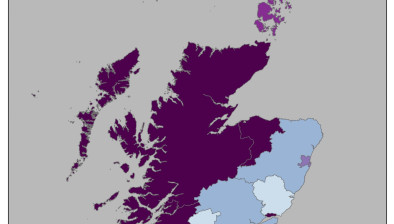‘Unacceptable’ new fuel poverty figures spark Budget warm homes call
 The Scottish Government’s draft budget must show significant investment in energy efficiency as a National Infrastructure Priority to end the scourge of cold, leaky homes, according to a number of organisations.
The Scottish Government’s draft budget must show significant investment in energy efficiency as a National Infrastructure Priority to end the scourge of cold, leaky homes, according to a number of organisations.
The call by CPAG Scotland, RCN Scotland, SCDI and the Existing Homes Alliance follows the publication of official statistics showing that 34.9 per cent of households in Scotland were in fuel poverty in 2014, only a slight improvement on the 35.8 per cent in 2013.
The new figures also show Scotland’s fuel poor are disproportionately living in cold, leaky homes. 73 per cent of households with the worst performing Energy Performance Certificate (EPC) ratings of F and G are fuel poor.
The statistics come less than a year before the statutory deadline for eradicating fuel poverty set by the Housing (Scotland) Act.
In October, the groups joined with an alliance of over 50 civic organisations and businesses calling on the Scottish Government to end cold homes in Scotland by 2025, by improving the energy efficiency of homes so that all homes reach at least a ‘C’ EPC (Energy Performance Certificate) standard.
Commenting on the new statistics, John Dickie, director of the Child Poverty Action Group (CPAG) in Scotland, said: “It is clearly unacceptable that today, in a modern Scotland, so many children are growing up in fuel poverty. Against a backdrop of family incomes put under increasing pressure by the political choices of the UK government, the additional burden of a difficult to heat home is an unnecessary one. With a target of eradicating fuel poverty less than a year away, the Scottish Government should use their Budget to invest in a long-term plan for ridding Scotland of cold homes.”
Royal College of Nursing (RCN) Scotland’s director, Theresa Fyffe, said: “After the worst ‘excess winter deaths’ figures for 15 years, it’s clear that we need to see greater preventative spending to protect the elderly, people with disabilities and other vulnerable groups living in unhealthy, hard to heat homes. Investing now in improving the energy efficiency of our poor-quality housing would help to reduce the burden on our NHS and our frontline nursing staff for decades to come.”
Scottish Council for Development and Industry (SCDI) chief executive, Ross Martin, said: “If the imperative of tackling fuel poverty weren’t enough, the business case for investing to improve our leaky homes is watertight. A comprehensive, long-term investment strategy from the Scottish Government to support all homes to reach at least a C energy performance rating in ten years would create up to 9,000 jobs a year spread across Scotland, create exciting opportunities for new Scottish businesses to flourish, and deliver economic growth.”
Existing Homes Alliance chair, Alan Ferguson, said: “The latest figures show that the fuel poor are disproportionately living in some of Scotland worst performing houses, wasting valuable resources heating the air outside their homes. That’s why tomorrow’s draft budget needs to follow through on the Scottish Government’s recent pledge to make energy efficiency a National Infrastructure Priority with a strong commitment and a clear long-term vision for all homes to reach a C energy rating in a decade. No other investment can do so much to cut energy bills for the fuel poor, create new jobs, reduce climate emissions and improve physical and mental health.”
In June 2015 the Scottish Government committed to making the improvement of energy efficiency a National Infrastructure Priority. However, the Scottish Government is yet to publish further detail about what this will mean in practice.
The Housing (Scotland) Act 2001 set a statutory duty on the Scottish Government to eradicate fuel poverty in Scotland, as far as is reasonably practicable, by November 2016.
The drop in fuel poverty levels in Scotland was given a cautious welcome by Energy Action Scotland.
According to the national charity, wholesale energy prices have fallen in recent times and support schemes such as the Warm Home Discount for those on lower incomes have also been in place. At the same time, programmes have been improving the energy efficiency of homes. The combination of factors which address the three main causes of fuel poverty show that a concerted effort can make a difference.
However, Norman Kerr, director of Energy Action Scotland, said the fact remains that the number of Scottish households struggling to afford to heat their home to an adequate level is still far too high.
He said: “It is clear that taking action to tackle all three main causes of fuel poverty can have a positive impact and that means making homes more energy efficient, reducing energy costs and improving income levels.
“There is still a significant fuel poverty problem in Scotland that needs more funding to solve it than is currently available.
“Tomorrow’s Scottish Government Budget is an opportunity to do more about reducing levels of fuel poverty in Scotland. Without it, the desperate situation of hundreds of thousands of households living in cold, damp homes will continue.”
Energy Action Scotland has already urged the Scottish Government to open discussions now on resetting the target to end fuel poverty, as it is clear the current target of November 2016 can no longer be met. The charity wants the Scottish Government to produce a fuel poverty strategy and action plan with costs and timelines.























